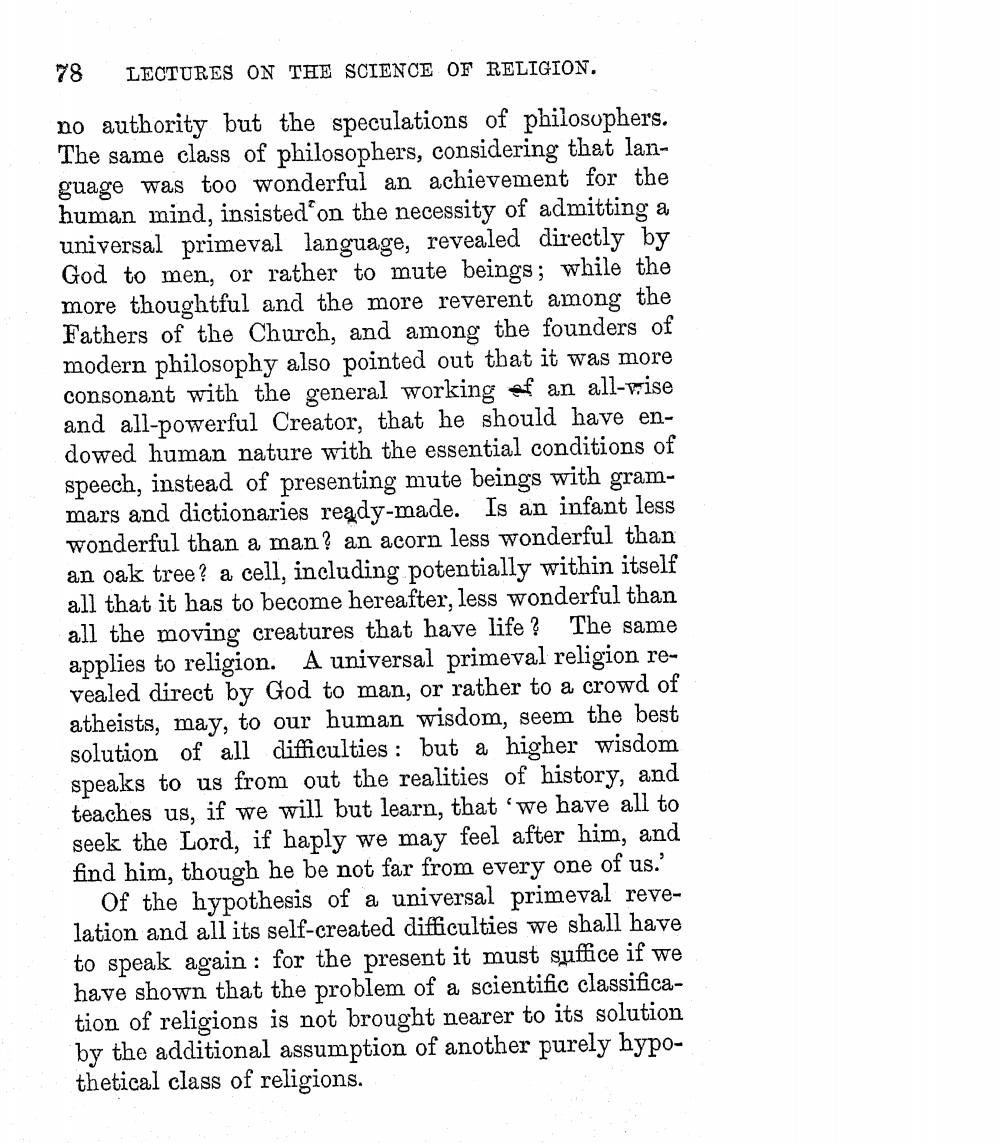________________
78
LECTURES ON THE SCIENCE OF RELIGION.
no authority but the speculations of philosophers. The same class of philosophers, considering that language was too wonderful an achievement for the human mind, insisted on the necessity of admitting a universal primeval language, revealed directly by God to men, or rather to mute beings; while the more thoughtful and the more reverent among the Fathers of the Church, and among the founders of modern philosophy also pointed out that it was more consonant with the general working of an all-vise and all-powerful Creator, that he should have endowed human nature with the essential conditions of speech, instead of presenting mute beings with grammars and dictionaries ready-made. Is an infant less wonderful than a man? an acorn less wonderful than an oak tree? a cell, including potentially within itself all that it has to become hereafter, less wonderful than all the moving creatures that have life? The same applies to religion. A universal primeval religion revealed direct by God to man, or rather to a crowd of atheists, may, to our human wisdom, seem the best solution of all difficulties: but a higher wisdom speaks to us from out the realities of history, and teaches us, if we will but learn, that we have all to seek the Lord, if haply we may feel after him, and find him, though he be not far from every one of us.'
Of the hypothesis of a universal primeval revelation and all its self-created difficulties we shall have to speak again : for the present it must suffice if we have shown that the problem of a scientific classification of religions is not brought nearer to its solution by the additional assumption of another purely hypothetical class of religions.




